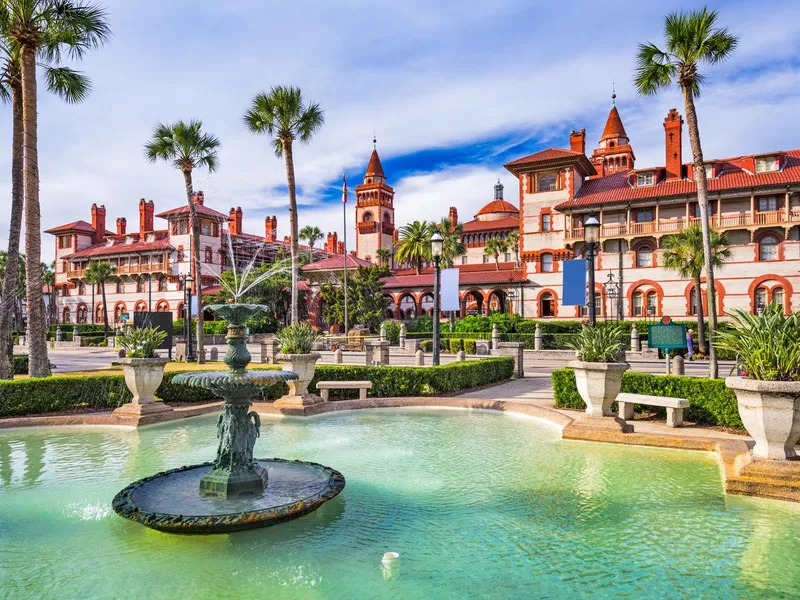There are lots of factors to consider when choosing a place to live, and taxes are definitely one of them. Whether you’re thinking of moving or just want to know where your state ranks, this list highlights the 21 states with the lowest overall tax burdens.
While you might expect states with no sales or personal income taxes to have lower tax burdens overall, that isn’t always the case. If a state government doesn’t collect tax in one form, they often have to compensate by collecting revenue in a different way — say, through higher excise taxes on goods such as beer, gasoline or cigarettes, or through higher property taxes. In other words, you might wind up paying more tax in less obvious ways.
The good news is that many states don’t levy estate and inheritance taxes and offer tax exemptions for seniors, disabled people and veterans. Some mineral- or resource-rich states are also able to pass much of the tax burden to corporations rather than individuals by taxing business gross receipts or through lease fees. In Alaska, for example, the state even pays each resident annually from an oil royalties fund.
With all of this in mind, here are the states with the lowest taxes, ranked from highest to lowest.
Why Texas Has One of the Lowest Tax Rates

wsfurlan / Getty Images
Texas is one of the few states that doesn’t levy personal income tax. The state also doesn’t have estate or inheritance taxes.
Texas property tax higher compared to other states, but Texas grants residents a number of exemptions, including one for a primary residence home. Residents who are 65 or older or disabled, or homeowners with wind or solar devices on their property, can claim additional exemptions. Disabled veterans are exempt from paying any property tax.
Its sales taxes are also higher than most states, but groceries, prescription and nonprescription drugs are all exempt from sales tax. Plus, Texas gasoline, spirits and wine excise taxes are among the lowest in the country.
Why Alabama Has One of the Lowest Tax Rates

Sean Pavone / Getty Images
Alabama has a progressive tiered personal income tax system, starting at about 2 percent and going up to a maximum of 5 percent. Alabama doesn’t tax Social Security payments or most government pension funds. However, the state does tax payments from private IRA and 401K funds. Alabama doesn’t levy estate and inheritance taxes.
Alabama has the lowest property tax rate in the country. Low-income and disabled residents don’t pay any property tax on their principal dwelling, while senior residents over 65 don’t pay the state portion of property tax and receive an exemption on county taxes.
Despite having relatively low levels of income tax and property tax, Alabama has relatively high sales tax. The state tax is around 4 percent, but local municipalities can charge as much as 7.5 percent tax.
Why Florida Has One of the Lowest Tax Rates

SeanPavonePhoto / Getty Images
The state of Florida doesn’t levy personal income, estate, inheritance or investment taxes. This means that the state relies heavily on sales and excise taxes, even including internet purchases or goods bought outside Florida but delivered in-state. Groceries and medicines are exempt from tax, but excise taxes are charged on fuels, tobacco products, communications services and more.
While the state of Florida doesn’t levy property taxes, local state municipalities do and receive most of their revenue this way. These local property taxes are some of the highest in the country. However, Florida residents who count their home as a primary residence or are senior citizens, widowed, blind, disabled or veterans can qualify for exemptions.
Why New Hampshire Has One of the Lowest Tax Rates

DenisTangneyJr / Getty Images
New Hampshire doesn’t have much of a sales tax. The state also doesn’t charge any personal income tax on earned income, and only 5 percent on interest and dividends that exceed $2,400 per person. This is a much lower rate than most other U.S. states. State residents who are over 65, blind, disabled or unable to work receive a $1,200 exemption on dividend and interest income.
New Hampshire receives much of its state revenue from excise taxes, so consumers do pay tax on cigarettes, beer and gasoline. The state also taxes electricity use, communication services, hotel rooms and restaurant meals. It has a timber tax, too, and charges 10 percent of the stumpage price after trees are cut.
With low sales and income taxes, the state has to tax somewhere. So, it has the highest property tax rate in the country and uses the income to fund state schools and parks.
Why Delaware Has One of the Lowest Tax Rates

Robert Kirk / Getty Images
Delaware doesn’t levy state or local taxes to consumers. Instead, the state charges most businesses tax on their total gross receipts. Delaware’s excise taxes, on such goods as gasoline, alcohol and cigarettes, are in the bottom one-third of states. Estate tax in Delaware is only charged on estates valued at over $5.45 million, which means that most heirs don’t have to pay any estate or inheritance taxes.
Delaware has a progressive personal income tax, ranging from 0% for low-income residents and going up to 6.6% for taxable income over $60,000. The state doesn’t tax Social Security payments as personal income, and the first $2,000 of other retirement income is exempt.
Property taxes are among the lowest in the country and eligible seniors qualify for a school property tax credit.
Why Alaska Has One of the Lowest Tax Rates

miracky / Getty Images
Meet the state with the lowest individual tax burden in the country. This is largely due to the fact that Alaska doesn’t levy state sales tax or personal income tax.
Only 24 municipalities in the entire state charge property tax, as many of the 321 communities across the state are still unincorporated. In addition, Alaska doesn’t charge property tax on the first $150,000 of assessed home value for people over 65 and disabled veterans.
Only 107 municipalities collect a local tax, and these tax rates range from 1 to 7 percent. Alaska also charges the lowest gasoline tax in the country. The state relies on oil and gasoline revenues to make up for lower tax income. In addition, Alaska’s Permanent Fund Dividend, drawn from oil royalties, pays each state resident roughly $1,600 per year to offset expenses.